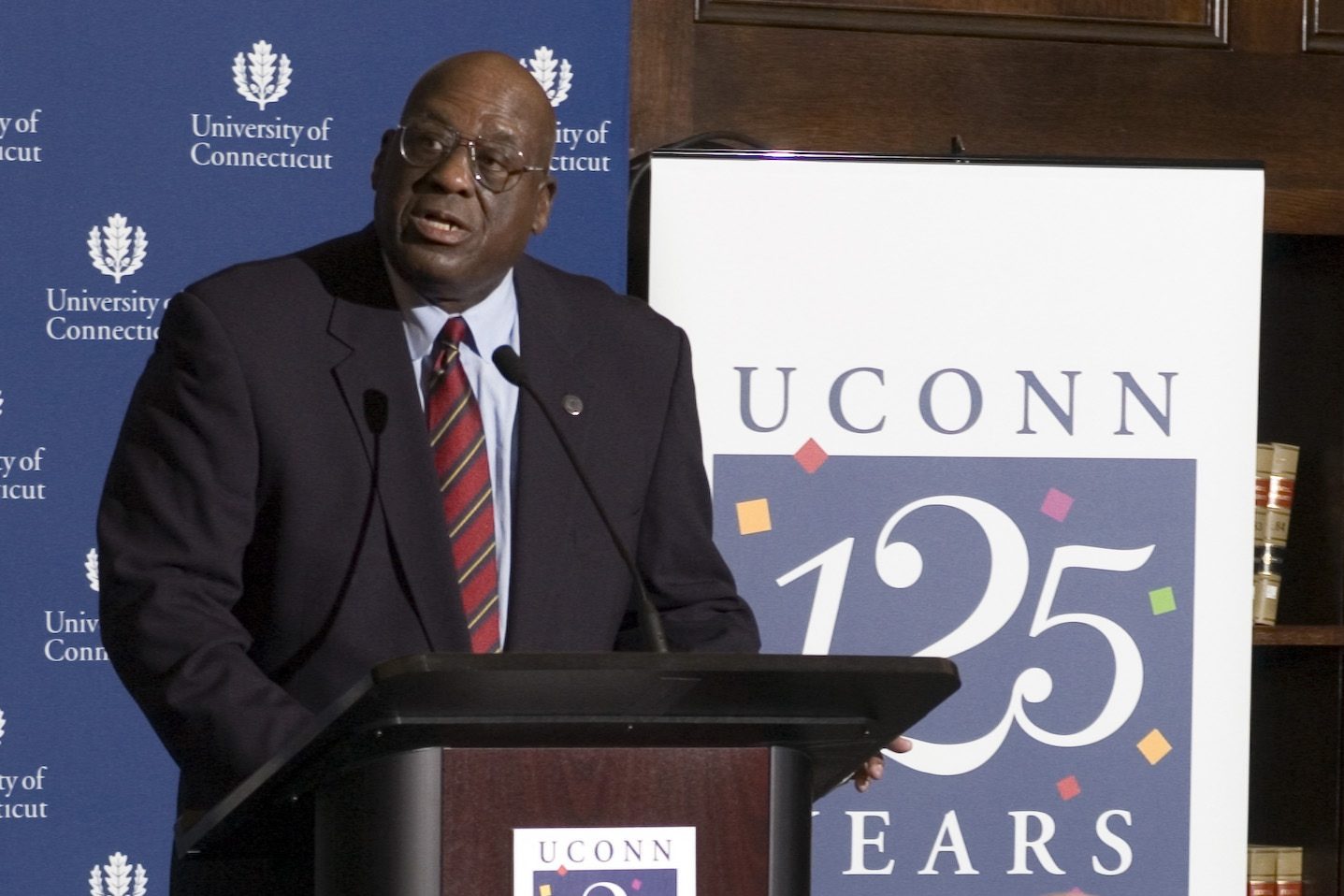The end of World War II spurred a new concern at the University of Connecticut over racial discrimination. In 1949, the student body voted overwhelmingly to approve a measure that prohibited any organization that restricted membership along racial lines from receiving university funds or meeting in university buildings. For the University chapter of the Phi Epsilon Pi fraternity, that meant a dilemma: they wanted to initiate Alfred Rogers ’53 (CLAS), ’63 JD, an African-American student who was president of the freshman class and a member of the varsity football team. The national leadership of the all-white fraternity refused, setting up a confrontation that would have implications for Greek life organizations around the country.
Listen to Tom Breen of UConn360 podcast recount the incident:
For full episodes of the UConn 360 podcast, visit uconn.edu/uconn360-podcast.
Read what Rogers said to the UConn community when he returned to campus in 2006: magazine.uconn.edu



